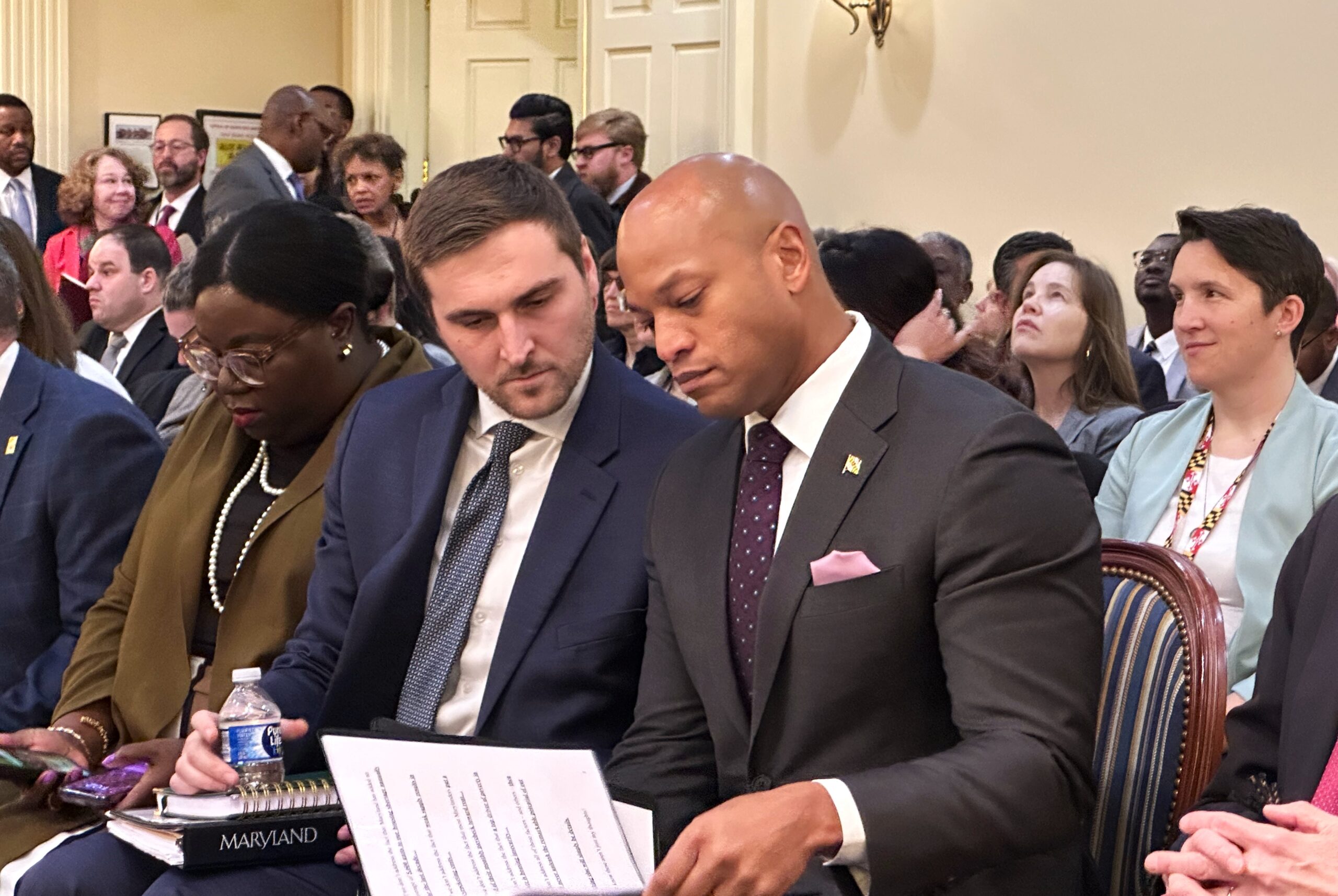County Leaders Hail $45 Million Behavioral Health Grant as ‘a Game-Changer’

Baltimore-area leaders celebrated the Health Services Cost Review Commission’s decision to award $45 million in grant funding to hospitals in the Greater Baltimore Region Tuesday morning.
“I want to thank the Health Services Cost Review Commission for making this funding available, and the 17 hospitals who are involved in this unprecedented collaboration,” Baltimore City Mayor-Elect Brandon M. Scott (D) said at a news conference Tuesday. “It will be a game-changer for our region — we will look back at this one day and look at this as something that we did that forever changed the trajectory of our region in the right way.”
The multi-jurisdictional program intends to divert people experiencing mental health crises and substance abuse problems from languishing in emergency rooms and police custody.
“Right now, we are living in a moment that calls on us to reimagine public safety and police response. Building the infrastructure of community-based behavioral health services is a central part of that,” Scott asserted. “This is about making sure our public health professionals are the ones responding to public health crises — not our law enforcement officers for situations where they are not required.”
Through the Greater Baltimore Regional Integrated Crisis System plan, hospitals in Baltimore City and Baltimore, Howard and Carroll counties will be awarded money over a five-year span to allow each jurisdiction to stand up an integrated, collaborative crisis care system through the commission’s Regional Partnership Catalyst Grant program.
“We know the challenges of our communities that face with behavioral and mental health and substance abuse don’t stop at our borders, so neither can our solutions,” said Scott. “Gone are the days when we can think about this just in these jurisdictional boxes.”
The funding, provided by the state’s hospital rate-setting system, will start to flow in at the start of 2021 until the program ends on Dec. 31, 2025.
Health care facilities in Southern Maryland, Prince George’s County and on the Eastern Shore have been awarded funding from the commission for similar crisis care plans.
Baltimore County Executive John A. Olszewski Jr. (D) thanked the Health Services Cost Review Commission for creating the program, which he believes will unveil “a path forward in saving lives … across our entire region.”
“These issues and these challenges know no boundaries, and so it’s great that we’re coming together to address these significant behavioral health challenges within our healthcare system in new and innovative ways,” he said.
“This is something that touches all of us,” Olszewski explained. “We want to reduce the stigma of mental illness so we can help people get the access to care they need.”
Howard County Executive Calvin Ball (D) said that programs like the Greater Baltimore Regional Integrated Crisis System plan only become more necessary as the COVID-19 pandemic continues to wage war on the state’s public health.
“This initiative has been in the works for more than a year but comes at a pivotal point of health and wellness for our region,” Ball said. “The impacts of COVID-19 will be felt for many years to come, especially on our collective physical, emotional and mental health.”
“What we’ve also recognized throughout this year is that we’re stronger when we work together.”
The commission’s grant program was awarded to hospital systems that based their proposals around the “Crisis Now: Transforming Services is Within Our Reach” model created by the National Action Alliance for Suicide Prevention.
Under the Greater Baltimore Regional Integrated Crisis System plan, all four jurisdictions plan to create an integrated behavioral health structure that includes:
- A uniform crisis hotline ― or Care Traffic Control Center ― including an infrastructure that allows staff to dispatch crisis response teams, set up care appointments and track callers in real-time as they move through the local mental healthcare system;
- Mobile crisis units, or non-law enforcement teams with mental health professionals and peer support specialists, that are available to meet people in the field;
- And an expanded availability of walk-in and virtual crisis clinics.
The first two years of the program will be centered around planning and creating a cohesive infrastructure. The Greater Baltimore Regional Integrated Crisis System plan should be implemented by 2023.
“This system will get you help earlier,” said Carroll County Commissioner Dennis Frazier (R). “Even if you don’t call the hotline number you could walk into a behavioral health facility and get seen that day, and you’ll not only get services to help you get over that crisis right now, but we’ll put you on a path to recovery.”




 Creative Commons Attribution
Creative Commons Attribution